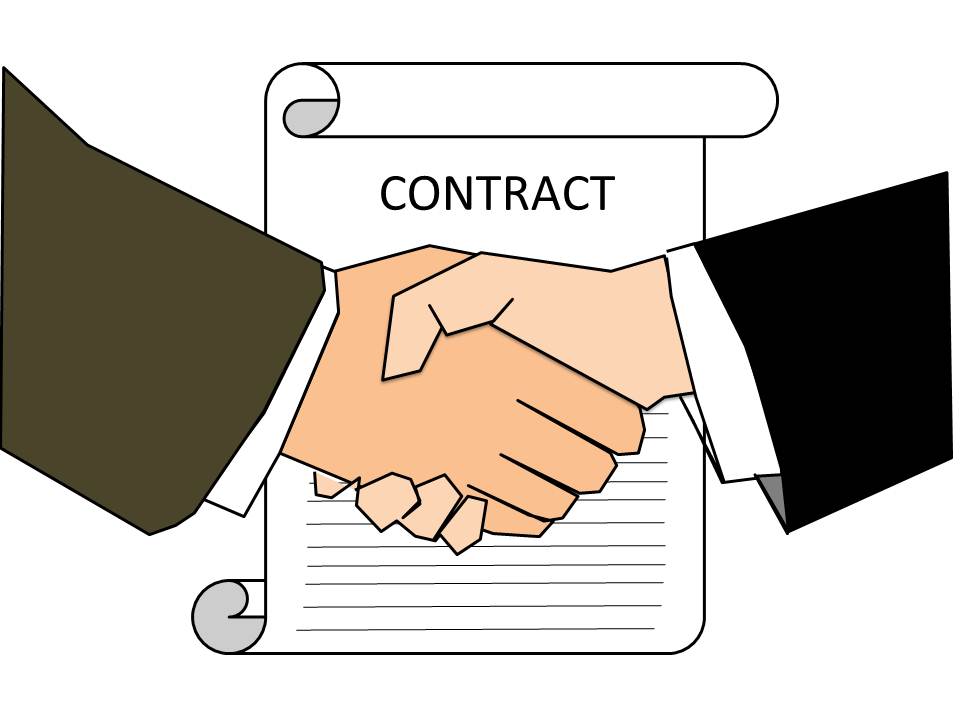You’ve sent your short story around to different markets, gotten rejections, but finally one publisher accepts your story. Hooray! Then an e-mail arrives with a long, legal document for you to sign. It’s your first writing contract. It looks so complicated, and all you want to do is see your story published, so you think about signing that contract without really reading it.
Don’t do that.
 At its most basic level, a contract is a written agreement between two willing parties. Each has something to offer, something the other party wants, so the contract should be for mutual benefit. The writer has his story and wants both money and a published story. The publisher is able to ensure books get printed and offered to the public and is willing to pay writers for good stories. Pretty simple, right? What could go wrong?
At its most basic level, a contract is a written agreement between two willing parties. Each has something to offer, something the other party wants, so the contract should be for mutual benefit. The writer has his story and wants both money and a published story. The publisher is able to ensure books get printed and offered to the public and is willing to pay writers for good stories. Pretty simple, right? What could go wrong?
Writing contracts (for short stories, with which I have experience), have a fairly standard structure. Here are the basic parts, though contracts vary by publisher:
- Definitions of Author, Publisher, and Work
- Permissions Author grants the Publisher
- Rights being purchased by Publisher and the time period (term) of the rights (when they revert back to the Author, both in case the book isn’t published and if it is)
- Payments and Royalties paid by Publisher to Author, including Author copies of published book. In the case of royalties, some contracts also state how the Publisher will provide periodic royalty statements.
- Termination of Agreement – some contracts stipulate how the agreement will be or could be terminated
- Author Warranties (author owns Work, no other conflicting contracts, Work is original, Work doesn’t defame others, etc.)
- Author Indemnities – (Author holds Publisher blameless in lawsuits if Author has misrepresented anything in contract)
- No competing publication (Author agrees not to publish Work elsewhere first)
- Changes in Text or Title – Publisher agrees not change the work without Author permission (approval of galleys), but usually minor copy-editing changes are allowed.
- Venue – links the contract to the laws of a specific country or state
- Signatures
For several reasons, you might be tempted to sign your first writing contract without reading it:
1. All those unfamiliar legal words are intimidating.
2. I’m anxious to get published.
3. It’s probably one of their standard contracts, anyway. A lot of writers must have signed a contract just like this.
4. Most publishers are above-board and honest, aren’t they?
If if all are those are true, read the contract anyway. But suppose you do read it and there are parts you don’t understand. Communicate with the publisher and ask him or her what those clauses mean. If you’re still confused, you can hire an intellectual property lawyer, but that shouldn’t be necessary for most short story contracts. Don’t sign the contract until you understand the terms and agree to them.
It’s a truism that contracts favor the party that writes them. You can attest to that, I’m sure, from other types of contracts you’ve seen which always spell out in detail what you’re supposed to do and what bad things will happen if you don’t, but gloss over the expectations and penalties for the other party.
Remember–a contract is an agreement between two willing parties who each give something and get something. So you can negotiate terms. If there’s something you don’t like in the contract or something missing, negotiate to make it right. Walking away from a bad deal is always an option–right up until you sign it.
Feel free to let me know what your experience with short story contracts has been. But hereinafter in consideration of the mutual covenants herein contained, the party of the first part shall be referred to as–
Poseidon’s Scribe
